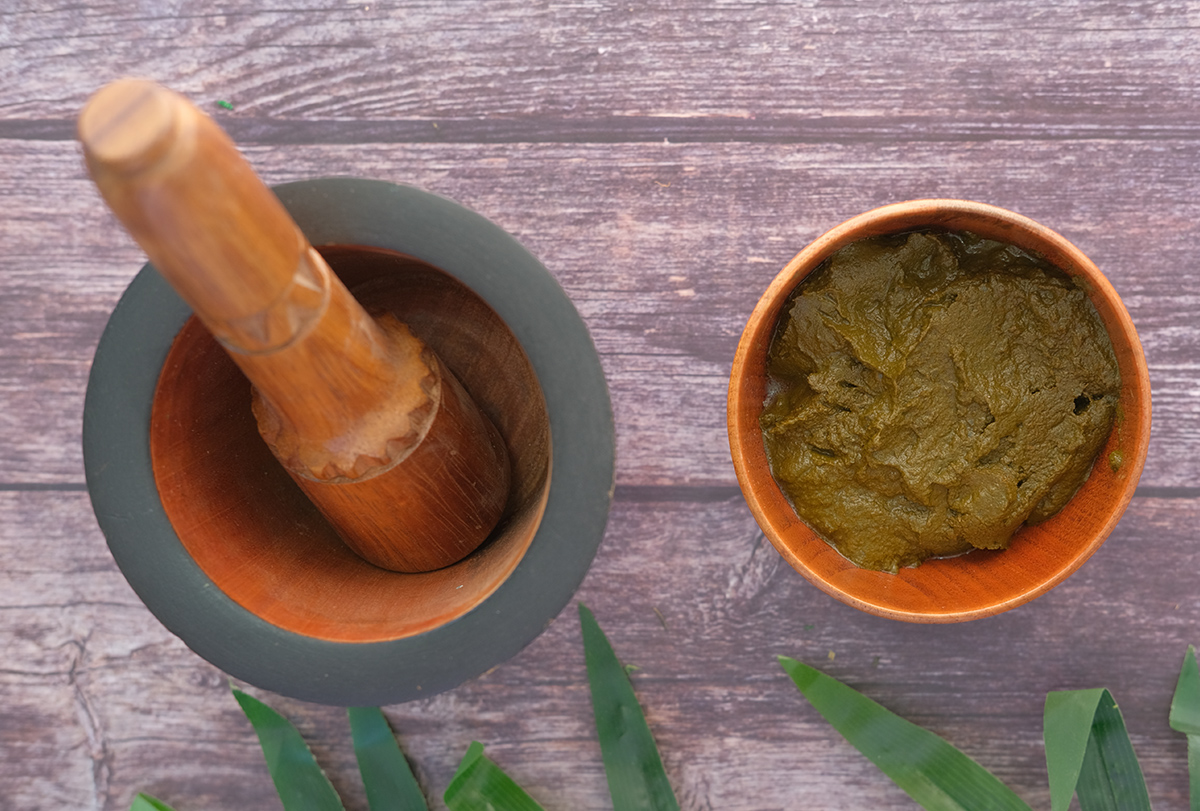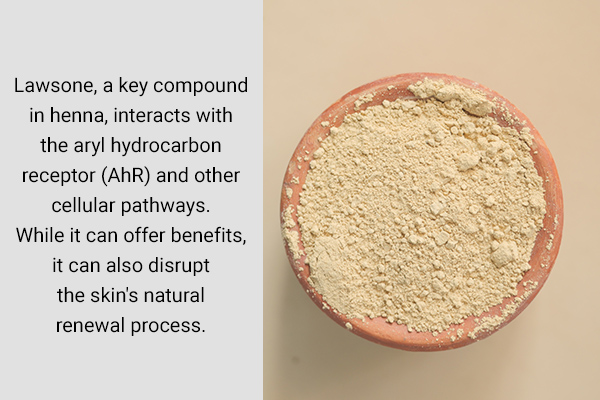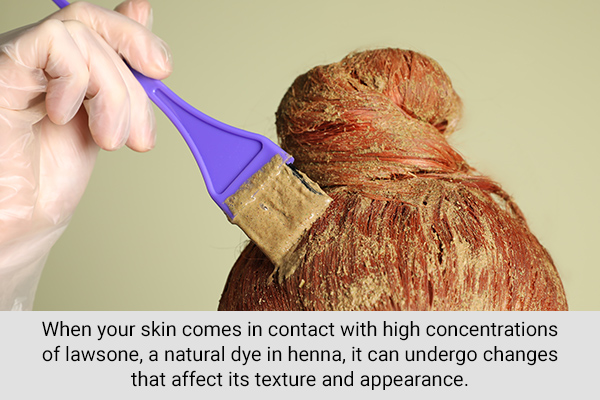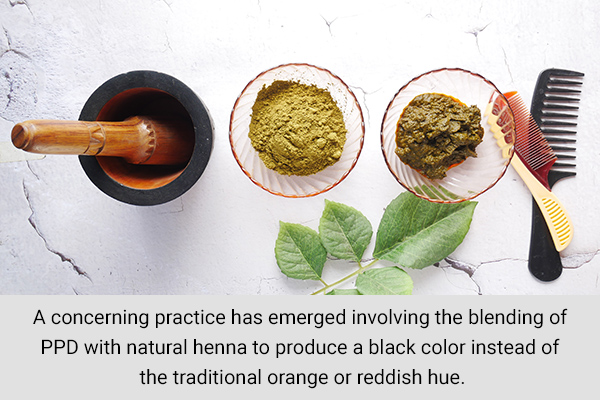In this article:
Henna, like many natural hair dyes, has its own set of pros and cons. It may not be the best choice for your hair if you use subpar henna products, you use it incorrectly, or your hair isn’t compatible with the henna product.

Henna, which is derived from the Lawsonia inermis plant, is a natural hair dye known to darken, add shine, and provide thickness to your hair. (1)
Nonetheless, like any beauty product, there are some disadvantages of using it. Continue reading to learn about them in more detail.
Hair Disadvantages of Using Henna
Here are some disadvantages of using henna on your hair.
1. May trigger allergic reactions
Very often, the henna that you can find on the market is black henna or henna that is mixed with certain other compounds. These compounds can be PPD or aminophenols, which can trigger allergic reactions. (2)(3)
According to research, 2.5% of people who get black henna tattoos that contain PPD experience contact allergies.
This also sensitizes them to PPD, which is why later on in their lives when they use henna dye on their hair, they suffer from allergic reactions. (4)(5)
2. Has a very limited range of pigments
The chemical entity in henna that gives it a dyeing property is lawsone. Although this pigment works very well in coloring the hair, the problem is you can only get a reddish-orange tone upon its use.
A lot of people are not fond of the color they get from using henna. Plus, the compound added to henna for enabling it to dye hair a darker shade of black called PPD is very harmful to your skin and overall health. (6)
This limited range of pigments coming from henna discourages people from using it as a hair dye.
3. Interferes with skin regeneration and healing

Lawsone, a key compound in henna, interacts with the aryl hydrocarbon receptor (AhR) and other cellular pathways. While it can offer benefits, it can also disrupt the skin’s natural renewal process.
This interference affects the growth and specialization of skin cells even on your scalp, which are crucial for healing wounds and maintaining healthy skin. (7)
4. Makes hair dry
Henna dye has the potential to make hair dry due to its properties and the way it functions as a dye. (8)
According to experts, henna binds with the hair’s keratin protein, making the hair darker.
In addition, henna can be alkaline, and this alkalinity can disturb the hair’s pH balance, possibly increasing dryness.
5. Leaves a foul odor
Using henna on the hair means living with a strong odor for several days following the treatment. (8) The lasting odor in your hair after henna use is due to natural compounds in henna leaves.
Henna paste, made by grinding these leaves with water, carries this distinct fragrance. Some people tolerate it well, while others might find it strong.
As the paste dries in your hair, the scent intensifies. Even after washing, a subtle henna smell may linger for a few days before naturally fading away.
6. Changes in skin texture

When your skin comes in contact with high concentrations of lawsone, a natural dye in henna, it can undergo changes that affect its texture and appearance.
This might cause the skin to develop a thicker and more delicate outer layer, which can influence how it looks and feels.
These changes can affect the overall health and aesthetics of the skin and aren’t usually what people desire for their skin. (7)
7. Creates a lot of mess during application
Henna application can be a messy process. (8) When making the henna paste involves mixing henna powder with a liquid, and it tends to have a thick and gooey consistency.
Applying this mixture to your hair can be challenging as it may drip or spill, potentially causing stains on your clothing and the surrounding area.
The messiness of henna application can be a drawback, as it necessitates careful handling and cleanup to prevent staining and ensure a smooth experience.
8. Needs constant reapplications
Henna needs consistent reapplication because its color is not permanent. The natural dye from henna gradually fades as you wash and style your hair.
To maintain the desired hue, regular touch-ups are necessary. This requirement for continuous reapplication is one of the key characteristics of henna, which offers a semipermanent hair coloring option. (8)
9. May cause systemic side effects

In recent years, a concerning practice has emerged involving the blending of PPD with natural henna to produce a black color instead of the traditional orange or reddish hue. However, this causes a lot of health issues.
Adverse consequences of this include: (6)
- Eczema
- Chemical burns
- Acute renal failure
- Severe angioneurotic edema
- Abdominal pain and vomiting
Most-Asked Questions
Is the effect of henna dye permanent on the hair?
No, henna dye is not permanent and will fade away as you wash your hair.
Will henna lighten your hair?
No, it will not lighten your hair.
Will henna dye my white hair?
Yes, henna will dye your whites to reddish hues.
Final Word
It is pretty common for beauty treatments to have their pros and cons. Thus, it is it is no surprise that henna hair dyes can have some disadvantages too.
Knowing and learning these cons and finding out the right product that keeps you away from the negative effects of henna are of utmost importance.
- Was this article helpful?
- YES, THANKS!NOT REALLY


